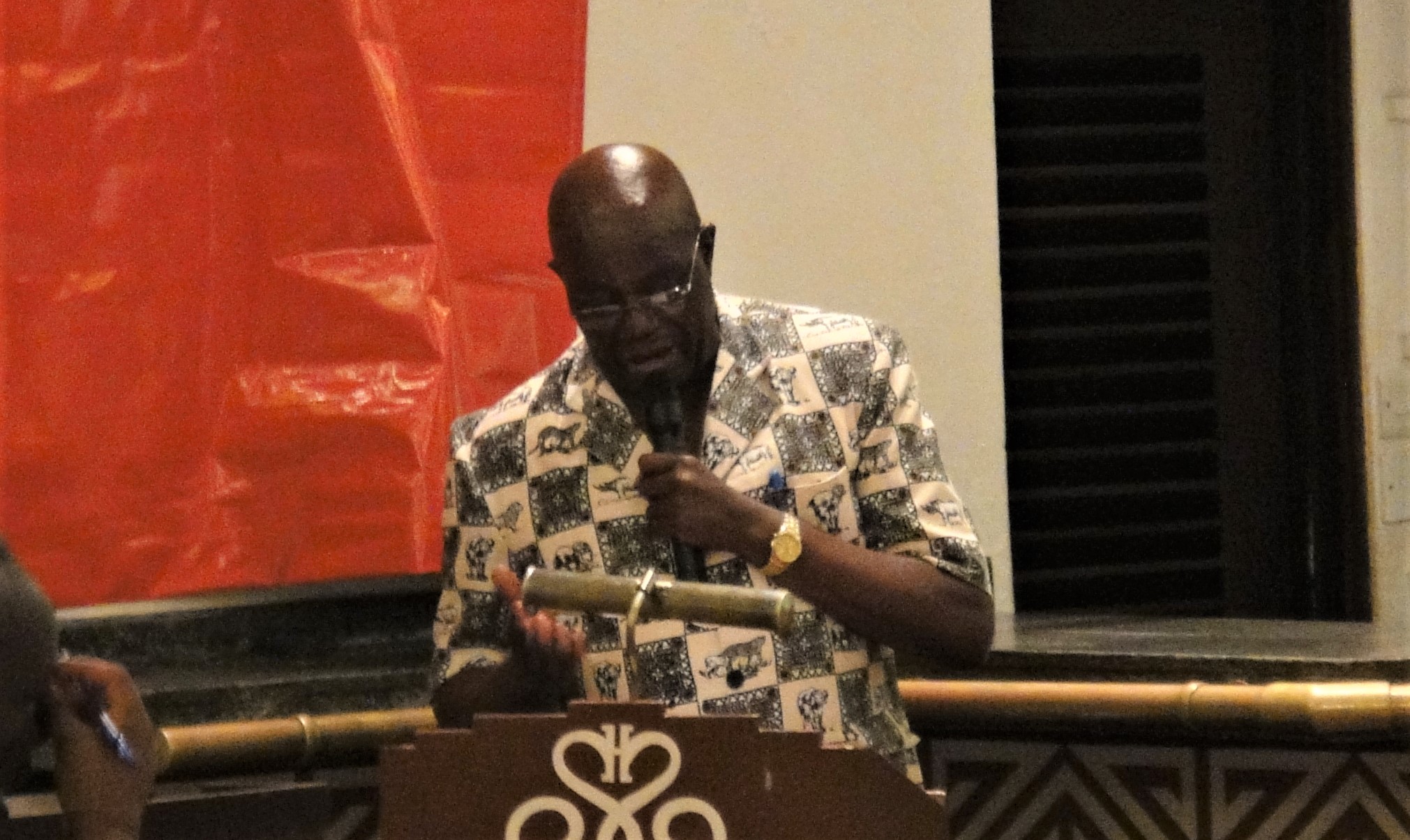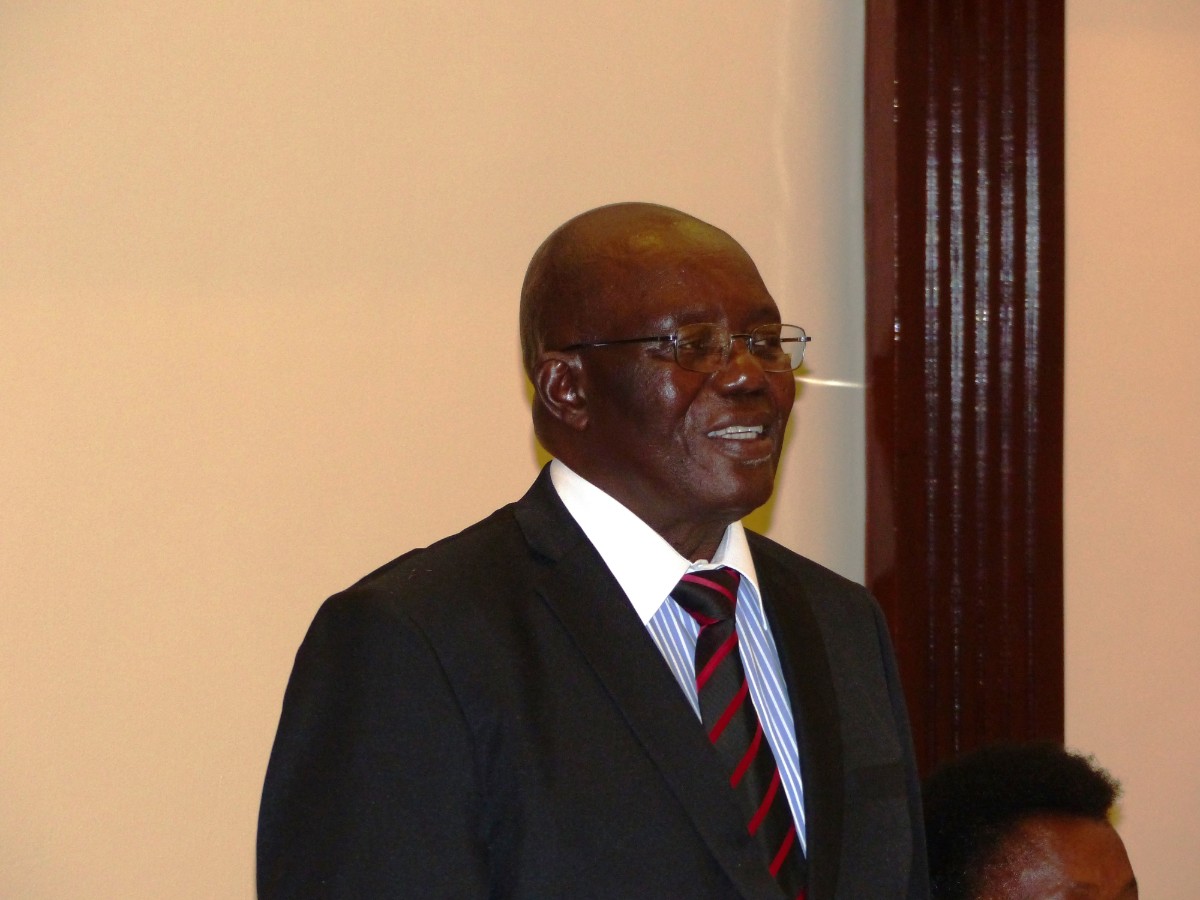


Mombasa, Kenya
My dear colleagues,
I am delighted to attend this 47th Annual Scientific Congress, in my capacity as the
Representative of the OIE, but also as a Kenyan, a veterinarian and a former
Chairperson of the KVA.
My talk will touch upon the issue of veterinary legislation, a relatively new focus for
the institution I represent today: the World Organisation for Animal Health or OIE.
In many African countries, veterinary legislation dates back to the colonial era and is
therefore based on the antiquated common, civil and sometimes religious legal
systems of the colonial powers of the day.
New societal demands in Africa and the world require that the skills and
competencies of both veterinary science and the veterinary profession be expanded to
include the new domains of wildlife medicine, animal welfare, aquatic animal health,
food safety, business management and communication.
Without modernising legislation to keep pace with these developments, judicial
conundrums may constrain relations between veterinary services and private
stakeholders causing untold damage to the veterinary profession in the long term.
Indeed, inadequate legislation is an open door for individuals to take advantage of
loopholes in legislation. For example, ill intentioned individuals have been known to
challenge the legal grounds of critical activities undertaken by public veterinary
services such as condemnation of carcasses, stamping out, and compulsory
vaccinations.
The Performance of Veterinary Services Evaluation (PVS) missions conducted in Africa
and elsewhere, from the year 2006, pinpointed veterinary legislation as a recurrent
shortcoming. The OIE then resolved to promote both good governance of veterinary
services, as laid down in chapter 3 of the Terrestrial Animal Health Code, and
modernisation of veterinary legislation.
The OIE realises that drafting of legislation is a craft that has not been mastered by
many veterinarians. Despite their very best intentions I am sure, members of our noble
profession cannot be expected to produce useful veterinary legislation on their own,
however gifted they may be technically. Lawyers, on the other hand, while well known
to be sharp of tongue and pen, cannot possibly produce relevant veterinary legislation
without the support of veterinary professionals.
For legislation to be useful for the nation it needs to be altruistic, and must therefore
involve all stakeholders in a participatory process. I wish to stress that legislation is
not drafted for the benefit of the veterinary services, but for the benefit of society at
large. It must also be underpinned by water-tight legal drafting principles, which may
vary from country to country and system to system.
Legislation must always comply with the following four principles – relevance,
acceptability, applicability and affordability. This is called the extrinsic quality of
legislation. In addition, legislation must fit within the hierarchy of existing laws: it
must not contradict national legislation or international treaties that the country has
ratified, nor must it violate the universal principle of separation of powers between the
legislature, judiciary and executive. This, along with the proper legal drafting rules
and formatting, is referred to as the intrinsic quality.
Dear colleagues and friends, experience unfortunately shows that many countries in
Africa have adopted legislation which infringes on some of these principles of
relevance, acceptability, applicability and affordability.
We must avoid adopting world-class legislation, copied from developed countries, that
is utterly detached from the reality on the ground in Africa.
I can say without any hesitation that this is why the OIE has never promoted a ‘one
size fits all’ solution with regard to legislation, nor have we attempted to develop any
type of “template legislation”.
In contrast, the OIE proposes broad guidelines on the topics that legislation should
cover for it to be relevant to its people, but leaves it to countries to fill in the blanks in
appropriate ways.
These broad guidelines cover the ground rules for achieving high quality, useful and
relevant legislation, that is, the respect for the hierarchy of legislation, the legal basis
with regard to primary and secondary legislation, transparency in the drafting process,
and last but not least, consultation with relevant stakeholders, scientists and legal
experts in the early stages of drafting. In 2012 the guidelines were converted into
standards and consolidated in a new chapter in the Terrestrial Code, dedicated to
veterinary legislation (chapter 3.4.).
The standards cover various areas of veterinary science and medicine with clear
definitions of “competent authority”, “delegation of powers”, “veterinarian” and
“veterinary para-professional”. Furthermore the standards touch on issues of
veterinary diagnostic laboratories (accreditation), health provisions relating to animal
production such as identification and traceability or safety of animal feeds, (emerging)
animal diseases’ surveillance, prevention and control, animal welfare, veterinary
drugs, food safety, import and export procedures and veterinary certification.
Dear colleagues, ladies and gentlemen, as you may have noted from my presentation,
the OIE’s Veterinary Legislation Support Programme (VLSP) has been designed to be a
long term support programme to countries, rather than a form of short term
consultancy. Indeed, countries requesting the OIE’s support are expected to commit
staff, funds and time to develop new legislation with the help of an OIE accredited
expert.
This expert does not impose his or her views on legislation.
The purpose of this approach is to ensure that legislation is owned by the country and
fully understood and mastered by those who will eventually enforce it.
The Veterinary Legislation Support Programme (VLSP) is now part of the OIE PVS
Pathway. Consequently, to qualify for such legal support, an initial PVS evaluation
must be completed. Twenty-three countries in Africa have requested veterinary
legislation support to date, and the programme is currently being conducted in 16
African countries. Worldwide, more than 40 countries have applied for the programme
and more than 30 programmes are ongoing or have been completed.
Kenya, I might add, is not part of this list, nor has it applied.
In parallel to the Veterinary Legislation Support Programme, the OIE has also
embarked on training OIE Delegates and certain focal points in the area of veterinary
legislation. Such seminars have already been organized for SADC Member States in
Gaborone, Botswana, which took place in 2011, and for ECOWAS Member States in
Cotonou, Benin, earlier this year. The conclusions of the ECOWAS seminar highlight
the need for regional economic communities to play a more active role to ensure
harmonisation of veterinary legislation at the (sub) regional level.
The next training of this nature will take place for EAC and IGAD staff and Member
States’ representatives, hopefully in October this year, in Arusha. This will be a
collaborative effort with the AU’s Inter-African Bureau for Animal Resources (IBAR).
My colleagues, I have attempted to highlight the procedures for enacting legislation to
accommodate the modern veterinary profession. I hope we can engage in useful
discussions.
I thank you very much for your kind attention.

